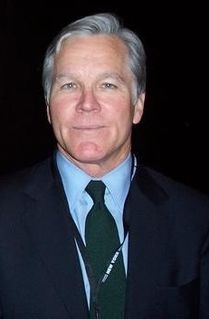A Quote by Thomas Jefferson
I will now add what I do not like. First, the omission of a bill of rights providing clearly and without the aid of sophisms for freedom of religion, freedom of the press, protection against standing armies, restriction against monopolies, the eternal and unremitting force of the habeas corpus laws, and trials by jury in all matters of fact triable by the laws of the land and not by the law of nations.
Quote Topics
Add
Against
Aid
Armies
Bill
Bill Of Rights
Clearly
Corpus
Eternal
Fact
First
Force
Freedom
Freedom Of Religion
Freedom Of The Press
G Force
Habeas Corpus
Jury
Land
Law
Laws
Like
Matters
Monopolies
Nations
Now
Omission
Press
Protection
Providing
Religion
Restriction
Rights
Standing
Trials
Will
Without
Related Quotes
By a declaration of rights, I mean one which shall stipulate freedom of religion, freedom of the press, freedom of commerce against monopolies, trial by juries in all cases, no suspensions of the habeas corpus, no standing armies. These are fetters against doing evil which no honest government should decline.
"It astonishes me to find... [that so many] of our countrymen... should be contented to live under a system which leaves to their governors the power of taking from them the trial by jury in civil cases, freedom of religion, freedom of the press, freedom of commerce, the habeas corpus laws, and of yoking them with a standing army. This is a degeneracy in the principles of liberty... which I [would not have expected for at least] four centuries."
We must never cease to proclaim in fearless tones the great principles of freedom and the rights of man which are the joint inheritance of the English-speaking world and which through Magna Carta, the Bill of Rights, the Habeas Corpus, trial by jury, and the English common law find their most famous expression in the American Declaration of Independence.
Of the liberty of conscience in matters of religious faith, of speech and of the press; of the trial by jury of the vicinage in civil and criminal cases; of the benefit of the writ of habeas corpus; of the right to keep and bear arms.... If these rights are well defined, and secured against encroachment, it is impossible that government should ever degenerate into tyranny.
The "establishment of religion" clause of the First Amendment means at least this: Neither a state nor the Federal Government can set up a church. Neither can pass laws which aid one religion, aid all religions, or prefer one religion over another. Neither can force nor influence a person to go to or to remain away from church against his will or force him to profess a belief or disbelief in any religion.
The relative freedom which we enjoy depends of public opinion. The law is no protection. Governments make laws, but whether they are carried out, and how the police behave, depends on the general temper in the country. If large numbers of people are interested in freedom of speech, there will be freedom of speech, even if the law forbids it; if public opinion is sluggish, inconvenient minorities will be persecuted, even if laws exist to protect them.
Just and true liberty, equal and impartial liberty, in matters spiritual and temporal is a thing that all men are clearly entitled to by the eternal and immutable laws of God and nature, as well as by the laws of nations and all well-grounded and municipal laws, which must have their foundation in the former.
The so-called liberals of today have the very popular idea that freedom of speech, of thought, of the press, freedom of religion, freedom from imprisonment without trial-that all these freedoms can be preserved in the absence of what is called economic freedom. They do not realize that, in a system where there is no market, where the government directs everything, all those other freedoms are illusory, even if they are made into laws and written up in constitutions.
In fact, it's the greatest threat to liberty of all kinds, whether it is freedom of religion, whether it is freedom of speech, whether it is freedom of the press, whether it is freedom of association, all of the rights that are enshrined in the First Amendment are threatened by the active, aggressive homosexual lobby and the homosexual agenda.
Society today is no longer in revolt against particular laws which it finds alien, unjust, and imposed, but against law as such, against the principle of law. And yet we must not regard this revolt as entirely negative. The energy that rejects many obsolete laws is an entirely positive impulse for renewal of life and law.
Does man's freedom consist in revolting against all laws? We say no, in so far as laws are natural, economic, and social laws, not authoritatively imposed but inherent in things, in relations, in situations, the natural development of which is expressed by those laws. We say YES if they are political and juridical laws, imposed upon men by men.






























